The most common question we get from people interested in attending Coder Foundry is:
“Do I have the background, the skill, the personality, the talent to graduate from the school and land a great job as a developer?”
In our last blog post we shared why it’s impossible to self-diagnose your own coding ability. Even worse, the most capable students at Coder Foundry are the ones who started with the most self-doubt.
There is a way to predict how well you’ll perform in our coding bootcamp, and as a professional programmer. We’ll share that method with you at the bottom of this post.
But first you should understand what educators have learned from studying programming students decades ago. Then we’ll look at what the very latest research tells us about learning to code.
Many researchers have studied what it takes to learn programming.
One breakthrough research paper examined hundreds of programming students, and repeated the process six times in two countries to ensure their findings were accurate
The researchers uncovered two surprises (PDF):
Surprise #1: Lack of prior programming experience isn't a deal breaker.
“Despite the tendency of institutions to rely on students’ prior programming background as a positive predictor factor for success, programming background has only a weak and insignificant effect on novices’ success at best,” the researchers wrote.
In other words, if you want to come to Coder Foundry, but you don’t have any programming experience, you are in the same boat as the person who has some experience coding before they attend our classes.
So what does matter? That brings us to...
Surprise #2: The ability to focus helps you learn programming more than natural aptitude
More from the study:
“The test was administered before the first week of an introductory programming course... About half used a rational model which they applied consistently to answer most or all of the questions... The consistent subgroup had an 85% pass rate in the course examination, and the rest a 36% pass rate.”
In plain language, programming students who could organize information in their heads, and consistently apply that to solve problems had the highest rate of success.
The ones who failed the class also had the intelligence to think logically, but they applied their “mental models” inconsistently.
This means IQ doesn’t guarantee a great programming career. Instead, your ability to focus and persevere as you solve problems with code is the strongest predictor of your programming success.
Can you stick with a problem for hours, days, and weeks at a time? If yes, then you’ll have a long and fruitful career as a programmer.
There’s a word for this secret superpower that the best programmers have. It’s called “grit”.
Angela Duckworth, a pioneering psychologist and researcher at the University of Pennsylvania defines grit as “passion and perseverance for long term goals.”
In her groundbreaking paper on the subject of learning and success, Duckworth found that “the achievement of difficult goals entails not only talent but also the sustained and focused application of talent over time”.
We agree with the new research on grit.
The highest achieving students at Coder Foundry are the ones who are willing to put in long hours building software applications using techniques and tools they just learned hours before.
The best students are not always the most intelligent, and their coding background doesn’t matter as much as most people think. If they have true grit they can master any coding language, ace the hardest technical interview, and perform like a champion at any programming job.
Duckworth continues:
“Grit entails working strenuously toward challenges, maintaining effort and interest over years despite failure, adversity, and plateaus in progress.
The gritty individual approaches achievement as a marathon; his or her advantage is stamina.
Whereas disappointment or boredom signals to others that it is time to change trajectory and cut losses, the gritty individual stays the course.”
Do you have grit? Take this test and find out.
This online quiz is based on the method Duckworth used to measure grit in students. Take the quiz and send us your score.
If you’re unhappy with your grit score, I have some good news. Passion and determination are not stagnant character traits. You can grow grit. You can cultivate what it takes to be a professional programmer.
We’ll cover how to do that in the next blog post.

















